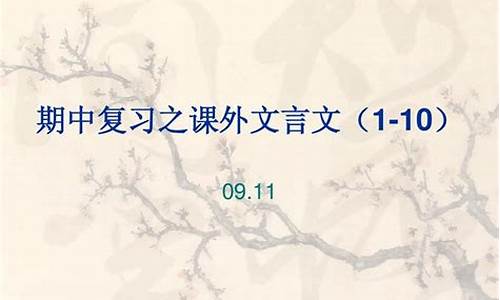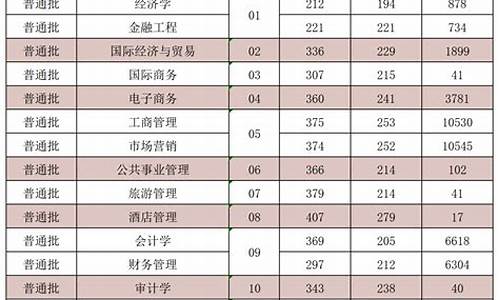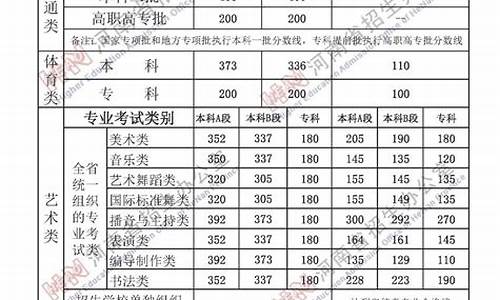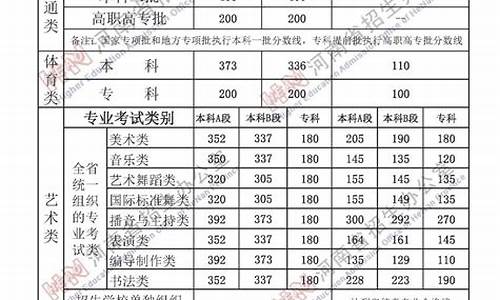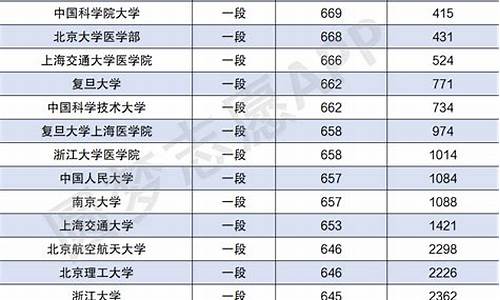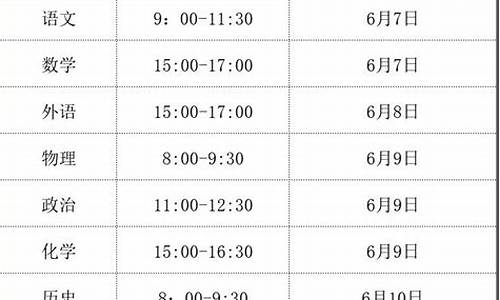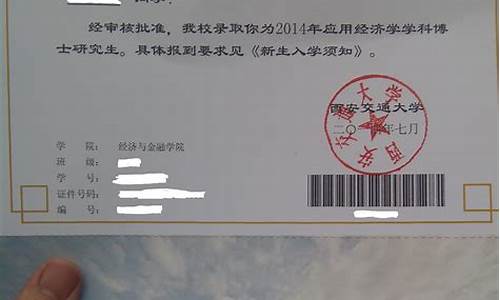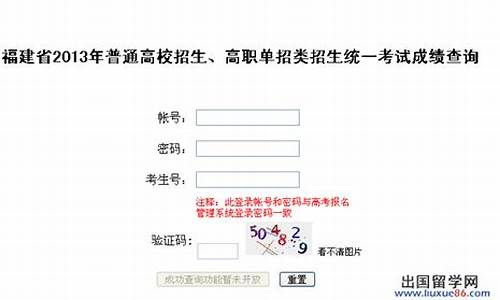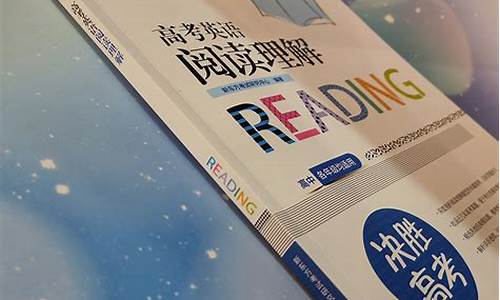2006高考试卷,2006高考试卷版本
1.2006上海高考数学 英语试卷和答案
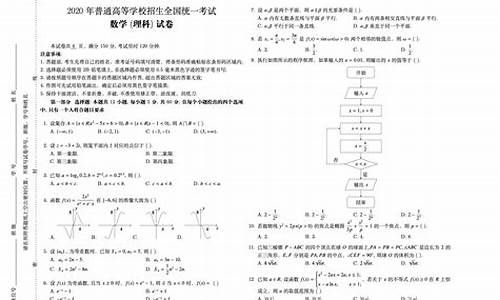
高中文理综合合集百度网盘下载
链接:提取码:1234
简介:高中文理综合优质资料下载,包括:试题试卷、课件、教材、视频、各大名师网校合集。
2006上海高考数学 英语试卷和答案
上海春季高考试卷及答案
阅 读(80分)
(一)阅读下文,完成第1—5题。(18分)
扇,自古以来为引风纳凉之物。千百年来除使用价值之外,小小的扇中还孕育着中华文化艺术的智慧,凝聚了古今工艺美术的精华,是民族传统文化艺术的瑰宝。“银烛秋光冷画屏,轻罗小扇扑流萤”早已成为脍炙人口的著名诗句。扇面的丹青墨宝值得珍藏,扇骨的精工细雕成为艺术。舞台上,演员一扇在手,或进或退,或开或合,瞬息万变,活灵活现。建筑中,“扇”这种独特的艺术造型,还被古典园林的漏窗所吸收,成为移步换景、美不胜收的花墙小景,表现出耐人寻味的文化魅力。
我国的扇具有源远流长的发展历史。目前所发现的最早实物扇应该是楚地出土的春秋、战国时的扇子,有竹扇和羽扇两种。虽然出土的竹扇是2000多年前的遗物,但其制作已相当精良。中国的扇仅从材料而言,就有羽扇、竹扇、纨扇、蒲葵扇等。传统的扇多为圆形,故称“团扇”。
扇面上采用书法,据文献记载,以“羲之书扇”流传最早。唐代在扇面上的绘画,已有实物出土,而且在唐代绘画中也有所反映。到了宋代,文人与绘画的关系越来越密切,扇面成为画师创作的天地,加之皇帝对书画扇面的重视,扇面艺术得到飞速发展,臻于顶峰。仅以《宋人画册》中百幅小品为例,其中纨扇面就有60余幅,而且这些扇面,题材广泛,构思精巧,开创了将绘画艺术融于方寸的“小中见大”的新局面,咫尺千里,雄浑壮阔。后来,又有以突出某一局部来代替全景的“边角”之景,如夏硅的《烟岫林居图》。取材中也有小至花鸟画中的野草闲花,昆虫禽鱼,它们纤毫毕现,栩栩如生,如宋徽宗赵佶的《枇杷山鸟图》,运以精心,出以妙笔,具有一种独特的情趣。因此,宋代的扇面,已成为我国古代绘画艺术中的瑰宝。扇面作为绘画的一种形式被继承、发扬、光大,实际上已脱离了扇的实用功能,而创作出艺术化的扇面形状的绘画作品,被历代书画爱好者作为精品珍藏。元、明、清时期,很多画家也热衷于扇面书画,直至今日,扇面书画还受到一些画家的青昧。扇的形式之美,使画面更有锦上添花的效果。我国的扇面艺术作为珍品,不仅为我国各大博物馆,也为世界各著名博物馆所珍藏,总数可达数百件之多。
在宋代,折叠扇从日本和高丽先后传入中国,扇面以纸、绢等制成,并以其新颖、灵巧、轻便受到欢迎。到明代中、晚期风靡一时,效仿四起, 出现了大量以诗、书、画为主体的扇面,另外又涌现出一批制造扇骨与扇面的能工巧匠。于是,折叠扇开始独领风骚,并有取代传统团扇之势。檀香扇是从折叠扇演化而来的,扇骨由檀香木制成。据传,苏州从1920年开始生产檀香扇,第一家作坊叫 “张多记”。檀香扇花色品种繁多,扇面制作精良,扇骨长短宽窄各有区别,工艺要求极为严格。
总之,从扇的发展可以看到中华民族智慧的结晶。小小一扇,凝聚了历代工艺的优秀成果,技艺精湛,异彩纷呈。同时,它又充分体现了中国传统书画艺术的表现力和创造力。并且,对外来文化的兼收并蓄,发扬光大,也是形成中国扇文化绚丽多彩的原因之一。
1.“银烛秋光冷画屏,轻罗小扇扑流萤”是唐代诗人 《秋夕》中的诗句。(2分)
2.根据要求,在下表横线上填人关于扇的合适内容。(3分)
年代 样式 (1)
宋之前 (2) 罗、纨等
自宋起 折叠 (3)
3.以下说法符合文意的两项是………………………………………………( )( )(6分)
久古典园林的花墙设计因吸收了扇的艺术造型而摇曳多姿,引人人胜。
B。 目前发现最早的实物扇是从楚地出土的,有羽扇、竹扇、纨扇、蒲葵扇等。
C《枇杷山鸟图》、《烟岫林居图》等扇面意境深远,气势雄浑,有咫尺千里之感。
D.唐代艺术家在扇面书画中善用“边角”之景,产生以小见大的艺术效果。
E。明代中晚期,新颖、灵巧、轻便的折叠扇一支独秀,取代了传统团扇。
P.我国的一些扇面,已成为扇面形状的绘画艺术珍品,为中外各大博物馆收藏。
G.越来越多的当代画家投入了扇面艺术的创作,极大地提升了人们的审美品位。
4.请任选所附的一幅扇图,作一简评。(3分)
5.有人说,现在都用空调、电扇,传统的扇子可以退出生活舞台了。你同意吗?请从两个方面说明理由。(4分)
(二)阅读下文,完成第6—11题。(20分)
幸福的篮子
(俄)尤?沃兹涅先斯卡娅
有段时间我曾极度痛苦,几乎不能自拔。
一天,我路过一家丰地下室式的菜店,见一美丽无比的妇人正踏着台阶上来——太美了,简直是拉斐尔《圣母像》的再版!我不知不觉放慢了脚步,凝视着她的脸。因为起初我只能看到她的脸。但当她走出来时,我才发现她矮得像个侏儒,而且还驼背。我耷拉下眼皮、快步走开了。我羞愧万分……瓦柳卡,我对自己说,你四肢发育正常,身体健康,长相也不错,怎么能整天这样垂头丧气呢?打起精神来!像刚才那位可怜的人才是真正不幸的人……
我永远也忘不了那个长得像圣母一样的驼背女人。每当我牢骚满腹或者痛苦悲伤的时候,她便出现在我的脑海里。我就是这样学会了不让自己自怨自艾。而如何使自己幸福愉快却是从一位老太太那儿学来的。
那次事件以后,我很快又陷入了烦恼,但这次我知道如何克服这种情绪。于是,我便去夏 日乐园漫步散心。我顺便带了件快要完工的刺绣桌布,免得空手坐在那里无所事事。我穿上一件极简单、朴素的连衣裙,把头发在脑后随便梳了一条大辫子。又不是去参加舞会,只不过去 散散心而已。
来到公园,找个空位子坐下,便飞针走线地绣起花儿来。一边绣,一边告诫自己:“打起精神!平静下来!要知道,你并没有什么不幸。”这样一想,确实平静了许多,于是就准备回家。恰在这时,坐在对面的一个老太太起身朝我走来。
“如果您不急着走的话,”她说,“我可以坐在这儿跟您聊聊吗?”
“当然可以!”
她在我身边坐下,面带微笑地望着我说:“知道吗,我看了您好长时间了,真觉得是一种享受。现在像您这样的可真不多见。”
“什么不多见?’
“您这一切!在现代化的列宁格勒市中心,忽然看到一位梳长辫子的俊秀姑娘,穿一身朴素的白麻布裙子,坐在这儿绣花!简直想象不出这是多么美好的景象!我要把它珍藏在我的幸福之篮里。”
“什么,幸福之篮?”
“这是个秘密!不过我还是想告诉您。您希望自己幸福吗?”
“当然了,谁不愿自己幸福呀。”
“谁都愿意幸福,但并不是所有的人都懂得怎样才能幸福。我教给您吧,算是对您的奖赏。孩子,幸福并不是成功、运气、甚至爱情。您这么年轻,也许会以为爱就是幸福。不是的。幸福就是那些快乐的时刻,一颗宁静的心对着什么人或什么东西发出的微笑。我坐在椅子上,看到对面一位漂亮姑娘在聚精会神地绣花儿,我的心就向您微笑了。我已把这一时刻记录下来,为了以后一遍遍地回忆。我把它装进我的幸福之篮里了。这样,每当我难过时,我就打开篮子,将里面的珍品细细品味一遍,其中会有个我取名为‘白衣姑娘在夏日乐园刺绣’的时刻。想到它,此情此景便会立即重现,?我就会看到,在深绿的树叶与洁白的雕塑的衬托下,一位姑娘正在聚精会神地绣花。我就会想起阳光透过椴树的枝叶洒在您的衣裙上;您的辫子从椅子后面垂下来,几乎拖到地上;您的凉鞋有点磨脚,您就脱下凉鞋,赤着脚;脚趾头还朝里弯着,因为地面有点凉。我也许还会想起更多,一些此时我还没有想到的细节。”
“太奇妙了!”我惊呼起来,“一只装满幸福时刻的篮子!您一生都在收集幸福吗?”
“自从一位智者教我这样做以后。您知道他,您一定读过他的作品。他就是阿列克桑德拉?格林。我们是老朋友,是他亲口告诉我的。在他写的许多故事中也都能看到这个意思。遗忘生活中丑恶的东西,而把美好的东西永远保留在记忆中。但这样的记忆需经过训练才行。所以我就发明了这个心中的幸福之篮。”
我谢了这位老妇人,朝家走去。路上我开始回忆童年以来的幸福时刻。回到家时,我的幸福之篮里已经有了第一批珍品。
2004年上海春季高考试卷
一、 80分
(一)阅读下文,完成第1—7题。(19分)
有的人读的书也不算少,如鲁迅所说,他们“从周朝人的文章,一直读到明朝人的文章,非常驳杂,脑子给古今各种马队践踏了一通之后,弄得乱七八糟,但蹄迹当然是有些存留的,这就是所谓有所得”。还有一些“潦倒而至于昏聩的人,凡是好的,他总归得不到”.前者缺乏独立思考能力,读书处于一种完全被动的全盘接受状态;后者则存在着“有色眼镜”的偏见,他只能接受那些与他的利益和偏见一致的东西。这样的态度最多只能做书籍的“俘虏”,是无法从中真正得到益处的。
鲁迅强调“自己思索”,不能把自己变成“书橱”;如果“只能看别人的思想艺术”,就无异于“脑子里给别人跑马”,就会导致思想的“硬化”,使读书的效果走向反面。思索并不是一种苦思冥想的内心反省活功,它以社会现实为根据,还必须同时“自己观察”,“用自己的眼睛去读世间这一部活书”;这也就是联系实际,因此他强调“必须和现实社会接触,使所读的书活起来”.这其实就是鲁迅自己读书的态度和方法,他从采不盲从书本,而是把书的内容同社会实际联系起来,加以观察和思索。因此他常常能取精用宏,从常见的书籍中得出人们没有看出的精辟的新意。譬如对于《二十四史》他□不像传统学者那样把这些所谓正史视为信史,□不是如五四时期某些人把它看成“相斫书”,“**的家谱”,□是在同野史和杂说的比较中,在同现实中“古已有之”的许多现象的观察中,经过认真的思考,认为只要善于清除历来史官那种“装腔作势”的涂饰,这些史书是写出了“中国的灵魂”的。他说:“只因为涂饰太厚,废话太多,所以很不容易察出底细来。正如通过密叶投射在莓苔上面的月光,只看见点点的碎影。”所以要从书中获得真正的教益和可靠的知识,就必须能够拨开遮掩月光的密叶,使“碎影”成为普照的清辉。对文学作品也是这样,他既充分地肯定了如《儒林外史》的“秉持公心,指摘时弊”,如《红楼梦》的“正因写实,转成新鲜”的杰出成就,也尖锐地指出了许多旧小说的掩盖矛盾、粉饰现实的“瞒”和“骗”的实质。他强调要“睁了眼看”,就是细心观察历史和社会的实际,认真思索,看这些文艺作品究竟是否正视和反映了现实和人生。只有这样,才能认识文艺作品的价值并从中获得教益。
从鲁迅的大量杂文中可以看到,他确实把“所读的书活起来”了,因此常常能够揭示要害,看出实质。例如历来被认为是田园诗人的陶渊明,当有的文章宣扬艺术的“最高境界”是“泯灭一切忧喜”的“静穆”,并且举出陶渊明“浑身是‘静穆’,所以他伟大”的时候,鲁迅针锋相对地指出:“陶潜正因为并非‘浑身是静穆’,所以他伟大。”而且说明“历来的伟大的作者,是没有一个‘浑身是静穆’的”。陶渊明的集子是有目共睹的普通书籍,鲁迅之所以能够正确理解它的内容实质,并及时对错误论调给以批驳,就因为他与那些关在“象牙之塔”里死读书的学究们对书的态度不同.他在读书的同时,始终把社会实践放在很重要的位置。在对待书籍的态度上,我们首先应该向鲁迅学习。
1.本文批评了两种错误的读书态度,一种是________;另一种是________。(2分)
2.文章阐述了鲁迅读书的态度和方法,概括起来就是:________ (2分)
3.文中第二自然段的空格处依次填人的关联词语是(2分)
A.虽 更 但 B.既 也 而
C.若 也 就 D.尚 更 则
4.“拨开遮掩月光的密叶,使‘碎影,成为普照的清辉”,这一比喻中“密叶”的含义是________(2分)
5.鲁迅说陶潜“并非‘浑身是静穆’”。请举出课文中陶潜的一篇作品(篇名或诗句),来说明这一观点。(3分)
6.对本文理解分析不正确的两项是(4分)
A.第一自然段中“这样的态度”,指它前面所说的“前者”和“后者”这两种态度。
B.第二自然段的例证既有读史学著作的,又有读文学作品的,体现了举例的典型性
C.第三自然段中运用举例的方法,着重分析了鲁迅杂文的思想内容和艺术成就。
D.全文三段文字之间的关系是,由表及里、逐层深入地展开阐述。
E.本文不仅引用鲁迅关于读书的言论,而且运用鲁迅读书实践的事例来阐述问题。
F.本文运用了对比说理的方法,将鲁迅的读书态度和方法与某些人作对比。
7.第二自然段中,鲁迅把某些读书不加思索的人称为“书橱”。请你另举出一种形象化的说法,来形容生活中某些人(或自己)的读书态度或方法(褒贬皆可),并对此说法加以阐述。(50字左右)(4分)
(二)阅读下文,完成第8—15题。(24分)
想北平
老舍
①设若让我写一本小说,以北平作背景,我不至于害怕,因为我可以捡着我知道的写,而躲开我所不知道的。让我单摆浮搁的讲一套北平,我没办法。北平的地方那么大,事情那么多,我知道的真觉太少了,虽然我生在那里,一直到廿七岁才离开。以名胜说,我没到过陶然亭,这多可笑!以此类推,我所知道的那点只是"我的北平",而我的北平大概等于牛的一毛。
②可是,我真爱北平。这个爱几乎是要说而说不出的。我爱我的母亲。怎样爱?我说不出。在我想作一件讨她老人家喜欢的时候,我独自微微的笑着;在我想到她的健康而不放心的时候,我欲落泪。言语是不够表现我的心情的,只有独自微笑或落泪才足以把内心揭露在外面一些来。我之爱北平也近乎这个。夸奖这个古城的某一点是容易的,可是那就把北平看得太小了。我所爱的北平不是枝枝节节的一些什么,而是整个儿与我的心灵相粘合的一段历史,一大块地方,多少风景名胜,从雨后什刹海的蜻蜓一直到我梦里的玉泉山的塔影,都积凑到一块,每一小的事件中有个我,我的每一思念中有个北平,这只有说不出而已。
③真愿成为诗人,把一切好听好看的字都浸在自己的心血里,象杜鹃似的啼出北平的俊伟。啊!我不是诗人!我将永远道不出我的爱,一种象由音乐与图画所引起的爱。这不但是辜负了北平,也对不住我自己,因为我的最初的知识与印象都得自北平,它是在我的血里,我的性格与脾气里有许多地方是这古城所赐给的。我不能爱上海与天津,因为我心中有个北平。可是我说不出来!
④伦敦,巴黎,罗马与堪司坦丁堡,曾被称为欧洲的四大“历史的都城”。我知道一些伦敦的情形;巴黎与罗马只是到过而已;堪司坦丁堡根本没有去过。就伦敦,巴黎,罗马来说,巴黎更近似北平--虽然"近似"两字要拉扯得很远--不过,假使让我“家住巴黎”,我一定会和没有家一样的感到寂苦。巴黎,据我看,还太热闹。自然,那里也有空旷静寂的地方,可是又未免太旷;不象北平那样既复杂而又有个边际,使我能摸着——那长着红酸枣的老城墙!面向着积水潭,背后是城墙,坐在石上看水中的小蝌蚪或苇叶上的嫩蜻蜓,我可以快乐的坐一天,心中完全安适,无所求也无可怕,象小儿安睡在摇篮里。是的,北平也有热闹的地方,但是它和太极拳相似,动中有静。巴黎有许多地方使人疲乏,所以______________,以便刺激;在北平,_____________________。
⑤论说巴黎的布置已比伦敦罗马匀调的多了,可是比上北平还差点事儿。北平在人为之中显出自然,几乎是什么地方既不挤得慌,又不太僻静:最小的胡同里的房子也有院子与树;最空旷的地方也离买卖街与住宅区不远。这种分配法可以算--在我的经验中--天下第一了。北平的好处不在处处设备得完全,而在它处处有空儿,可以使人自由的喘气;不在有好些美丽的建筑,而在建筑的四围都有空闲的地方,使它们成为美景。每一个城楼,每一个牌楼,都可以从老远就看见。况且在街上还可以看见北山与西山呢!
⑥好学的,爱古物的,人们自然喜欢北平,因为这里书多古物多。我不好学,也没钱买古物。对于物质上,我却喜爱北平的花多菜多果子多。花草是种费钱的玩艺,可是此地的"草花儿"很便宜,而且家家有院子,可以花不多的钱而种一院子花,即使算不了什么,可是到底可爱呀。墙上的牵牛,墙根的靠山竹与草茉莉,是多么省钱省事而也足以招来蝴蝶呀!至于青菜,白菜,扁豆,毛豆角,黄瓜,菠菜等等,大多数是直接由城外担来而送到家门口的。雨后,韭菜叶上还往往带着雨时溅起的泥点。青菜摊子上的红红绿绿几乎有诗似的美丽。果子有不少是由西山与北山来的,西山的沙果,海棠,北山的黑枣,柿子,进了城还带着一层白霜儿呀!哼,美国的橘子包着纸;遇到北平的带霜儿的玉李,还不愧杀!
⑦是的,北平是个都城,而能有好多自己产生的花,菜,水果,这就使人更接近了自然。从它里面说,它没有象伦敦的那些成天冒烟的工厂;从外面说,它紧连着园林,菜圃与农村。采菊东篱下,在这里,确是可以悠然见南山的;大概把"南"字变个"西"或"北",也没有多少了不得的吧。象我这样的一个贫寒的人,或者只有在北平能享受一点清福了。
⑧好,不再说了吧;要落泪了,真想念北平呀!
一九三六年六月十六日
[注]文中说的“北平”是1928年至1949年间对北京的旧称。
英语:
2006年全国普通高等学校招生统一考试
上海英语试卷
本试卷分为第1卷(第1-12页)和第Ⅱ卷(第13页)两部分。全卷共13页。满分150分。考试时间120分钟。
第Ⅰ卷 (共105分)
考生注意:
1. 答第1卷前。考生务必在答题卡和答题纸上用钢笔或圆珠笔清楚填写姓名、准考证号、校验码. 并用铅笔在答题卡上正确涂写准考证号和校验码。
2. 第1卷(1-16小题. 25-84小题)由机器阅卷, 答案必须全部涂写在答题卡上。考生应将代表正确答案的小方格用铅笔涂黑。注意试题题号和答题卡编号一一对应, 不能错位。
答案需要更改时。必须将原选项用橡皮擦去, 重新选择。答案不能写在试卷上。写在试 卷上一律不给分。第1卷中的第17-24小题和第Ⅱ卷的试题, 其答案写在答题纸上, 如写在试卷上则无效。
I. Listening Comprehension
Part A Short Conversations
Directions: In Part A. you will hear ten short conversations between two speakers. At the end of each conversation, a question will be asked about what was said. The conversations and the questions will be spoken only once. After you hear a conversation and the question about it. Read the four possible answers on your paper. and decide which one is the best answer to the question you have heard.
1. A. On March 2. B. On March 3. C. On March 5. D. On March 8.
2. A. At a cinema. B. At an airport. C. At a railway station. D. At a stadium.
3. A. Old castles. B. Hunting games. C. A seaside holiday. D. An adventure.
4. A. By bus. B. By underground. C. On foot. D. By bicycle.
5. A. Go to the movies. B. See a doctor. C. Get some fruit. D. Stay at home
6. A. Car seller. B. Police officer. C. Detective. D. Reporter
7. A. Funny B. crazy. C. Amused. D. P1eased
8. A. They’d better not go riding. B. Riding a bike is a great idea.
C. It’s not good riding in the rain D. They can go riding half an hour later
9. A. There won’t be enough cups left. B. They’ve got plenty of cups.
C. They’re buying what they need. D. They’ve got enough food for the picnic.
10. A. He's unable to finish his homework. B. He can’t give the woman his computer.
C. He's to remove the virus. D. He's infected with some disease.
Part B Passages
Directions: In part B, you will hear two short passages, and you will be asked three questions on each of the passages. The passages will be read twice, but the questions will be spoken only once. When you hear a question, read the four possible answers on your paper and decide which one would be the best answer to the question you have heard.
Questions 11 through 13 are based on the following passage.
11. A. Some engineers. B. The landlord of the pub.
C. The former employees. D. Some customers of the company.
12.A.Threeyears ago. B. Five years ago. C. Last year. D. This year.
13. A. Why a company lost its customers. B. Why a company went out of business.
C. How a company went from bad to worse. D. How a company got out of its difficult situation
Questions 14 through 16 are based on the following report.
14. A. Physics. B. chemistry. C. English Literature. D. Media Studies
15. A. More than 144,000. B. About 147,500.
C. 7.5% of all the test takers. D. 4.6%of all the test takers.
16. A. Few students avoid harder subjects. B. Each subject has the same level of difficulty.
C. Some subjects are more difficult than others. D. Pupils are important to t11e country’s development.
Part C Longer Conversations
Directions: In Part C, you will hear two longer conversations. The conversations will be read twice. After you hear each conversation, you are required to fill in me numbered blanks with the information you have heard. Write your answers on your answer sheet.
B1anks l 7 through 20 are based on the following conversation.
Taxi Order Form
Name: John Smith
Time: 5:30 a.m., ___17___, June 8th
To: The ___18___
From: 99 Kent Street, near Carlington ___19_____
Phone Number: ____20____
Complete the form. Write ONE WORD for each answer.
Blanks 21 through 24 are based on the following conversation.
What does the woman complain about? ______21_______
What does the man suggest the woman do first? She should __22__ all the way to the right.
Why is the engineer sent up? He is __23__ for maintaining buildings.
When is it suitable for the engineer to come? ___24___ later.
Complete the from. Write NO MORE THAN THREE WORDS for each answer.
Ⅱ. Grammar and Vocabulary
Directions: Beneath each of the following sentences there are four choices marked A, B, C and D. Choose the one answer that best completes the sentence.
25. —It’s atop secret. —Yes, I see. I will keep the secret _____ you and me
A. with B. around C. among D. between
26. Black holes ______ not be seen directly, so determining the number of them is a tough task.
A. can B. should C. must D. need
27. Send my regards to your lovely wife when you _______ home.
A. wrote B. will write C. have written D. write
28. A typhoon swept across tiffs area with heavy rains and winds_____ strong as 113 miles per hour.
A. too B. very C. so D. as
29. I made so many changes in my composition mat only I could read it. To ____ else, it was hard to make out.
A. none B. everyone C. someone D. anyone
30. A dozen ideas were considered _____ the chief architect decided on the design of the building.
A. because B. before C. whether D. unless
31. Eugene's never willing to alter any of his opinions. It’s no use ____ with him.
A. to argue B. arguing C. argued D. having argued
32. When he turned professional at the age of 11, Mike _____ to become a world champion by his coach and parents.
A. expected B. was expecting C. was expected D. would be expected
33. Energy drinks are not allowed _____ in Australia but are brought in from New Zealand.
A. to make B. to be made C. to have been made D. to be making
34. Russ and Earl were auto mechanics _____ the same pay, but Earl had more ambition.
A. to earn B. to have earned C. earning D. earned
35. One advantage of playing the guitar is _____ it can give you a great deal of pleasure.
A. how B. why C. that D. when
36. The mother felt herself ____ cold and her hands trembled as she read the letter from the battlefield.
A. grow B. grown C. to grow D. to have grown
37. In an hour, we can travel to places _____ would have taken our ancestors days to reach.
A. where B. when C. which D. what
38. My parents were quarrelling about me ____ I could not quite tell why.
A. since B. though C. if D. until
39. He spoke proudly of his part in the game, without mentioning ____ his teammates had done.
A. what B. which C. why D. while
40. _____ automatically the e-mail will be received by all the club members.
A. Mailed out B. Mailing out C. To be mailed out D. Having mailed out
41. You can see the stars on a clear night, but in the daytime they are _____.
A. unavoidable B. invisible C. inaccessible D. unavailable
42. When Jane began to take swimming lessons, her main _____ was the fear of water.
A. evidence B. crisis C. obstacle D. danger
43. Try not to start every sentence with “the”. _____ the beginnings of your sentences.
A. Vary B. Decorate C. Form D. Describe
44. I hope I will not be called on in class as I’m not yet _______ prepared.
A. attentively B. readily C. actively D. adequately
III. Cloze
Directions: For each blank in the following passages there are four words or phrases marked A, B, C and D. Fill in each blank with the word or phrase that best fits the context.
(A)
Several years ago, well-known writer and editor Norman Cousins became very ill. His body ached and he felt constantly tired. It was difficult for him to even __45__ around. His doctor told him that he would lose the ability to move and eventually die from the disease. He was told he had only a 1 in 500 chance of survival.
__46__ the diagnosis(诊断), Cousins was determined to overcome the disease and survive. He had always been interested in medicine and had read a book, which discussed the idea of how body chemistry and health can be damaged by emotional stress and negative __47__. The book made Cousins think about the possible __48__ of positive attitudes and emotions. He thought, “Is it possible that love, hope, faith, laughter, confidence, and the __49__ to 1ive have positive treatment value?”
He decided to concentrate on positive emotions as a way to treat some of the symptoms of his disease. In addition to his traditional medical treatment, he tried to put himself in situations that would __50__ positive emotions. “Laugh therapy” became part of his treatment. He __51__ time each day for watching comedy films, reading humorous books, and doing other activities that would draw out __52__ emotions. Within eight days of starting his ‘‘laugh therapy” program his pain began to __53__ and he was able to sleep more easily. He was able to return to work in a few months’ time and __54__ reached complete recovery after a few years.
45. A. run B. pass C. move D. travel
46. A. Besides B. Despite C. Without D. Beyond
47. A. attitudes B. beliefs C. goals D. positions
48. A. shortcoming B. harm C. benefit D. interest
49. A. emotion B. pain C. fear D. will
50. A. bring about B. set about C. put up D. make up
51. A. afforded B. appointed C. offered D. arranged
52. A. positive B. approving C. strong D. mixed
53. A. escape B. decrease C. shrink D. end
54. A. generally B. especially C. actually D. presently
(B)
“When a customer enters my store, forget me. He is King, ’’said John Wanamaker, who in l876 turned an abandoned railway station in Philadelphia into one of me world’s first department stores. This revolutionary concept __55__ the face of retailing(零售业) and led to the development of advertising and marketing as we know it today.
But convincing as that slogan was, __56__ the shopper was cheated out of the crown. __57__ manufacturing efficiency increased the variety of goods and lowered prices, people still relied on advertisements to get most information about products. Through much of the past century, ads spoke to an audience restricted to just a few radio or television channels or a __58__number of publications. Now media choice, has __59__ too, and consumers select what they want from a far greater variety of sources—especially with a few clicks of a computer mouse. __60__ the internet, the consumer is finally seizing power.
As our survey shows, __61__ has great implications for companies, because it is changing the way the world shops. Many firms already claim to be “customer-driven” or “consumer-centred”. Now their __62__ will be tested as never before. Taking advantage of shoppers’ __63__ will no longer be possible: people will know—and soon tell others, even those without the internet—that prices in the next town are cheaper or that certain goods are inferior. The internet is working wonders in __64__ standards. Good and Good and honest firms should benefit most.
55. A. changed B. maintained C. restored D. rescued
56. A. in time B. in truth C. in case D. in theory
57. A. Just as B. The moment C. If D. Although
58. A. 1imited B. minimum C. sufficient D. great
59. A. disappeared B. existed C. exploded D. survived
60. A. According to B. Thanks to C. But for D. Apart from
61. A. consumer power B. product quality C. purchasing habit D.manufacturing efficiency
62. A. information B. investment C. claims D. shops
63. A. generosity B. knowledge C. curiosity D. ignorance
64. A. raising B. lowering C. abandoning D. carrying
IV. Reading Comprehension
Directions: Read the following four passages. Each passage is followed by several questions or unfinished statements. For each of them mere are four choices marked A, B, C and D. Choose the one mat fits best according to me information given in me passage you have just read.
(A)
Cara Lang is 13. She lives in Boston, Massachusetts, in me U. S. Last Thursday, she didn't go to school. She went to work with her father instead. Every year, on the fourth Thursday in April, millions of young girls go work. This is Take Our Daughters to Work Day. The girls are between me ages of 9 and 15. They spend the day at work with an adult, usually a mother, father, aunt, or uncle. They go to offices, police stations, laboratories, and other places where their parents or other family members work. Next year, the day will include sons, too.
The Ms. Foundation, an organization for women, started the program about ten years ago. In the U.S., many women work outside the home. The Ms. Foundation wanted girls to find out about many different kinds of jobs. Then, when the girls grow up, they can choose a job they like.
Cara's father is a film director. Cara says, “It was very exciting for me to go to the studio with my dad. I saw a lot of people doing different jobs.” Many businesses have special activities for girls on this day. Last year, Cara went to work with her aunt at the University of Massachusetts. In the engineering department, the girls learned to build a bridge with toothpicks and Candy. In the chemistry department, they learned to use scales. They learned about many other kinds of jobs, too.
Right now, Cara does not know what job she will have when she grows up. But because of Take Our Daughters to Work Day, she knows she h2Ls many choices.
65. What is Cara's father?
A. An engineer. B. An official. C. A moviemaker. D. A professor.
66. According to the passage, Take our Daughters to work Day is ______.
A. on every Thursday in April B. a holiday for girls of all ages
C. a day for girls to know about jobs D. a day for girls to get a job easily
67. On this special day, Cara has done all the following EXCEPT that ____.
A. she learned to use scales B. she worked as an actress
C. she went to work with her aunt D. she used toothpicks and Candy to build a bridge
68. What is probably the best title for the passage?
A. Cara Lang, a Fortunate Girl B. Take Our Daughters to Work Day
C. Children's Day and Work Day D. Ms. Foundation, an Organization for Women
(B)
Nervous suspects(嫌疑犯) locked up in Britain's newest police station may feel relieved by a pleasant yellow Colour on the door. If they are close to confessing a crime, the blue on the wall might tip the balance.
Gwent Police have abandoned colours such as greys and browns of the 20th-century police cell(牢房) and have used colour psychology to decorate them.
Ystrad Mynach station, which recently opened at a cost of£5 million, has four cells with glass doors for prisoners who suffer from claustrophobia(幽闭恐怖症). Designers have painted the frames yellow, which researchers say is a calming colour. Other cells contain a royal blue line because psychologists believe that the colour is likely to encourage truthfulness.
The station has 31 cells, including 12 with a “live scan” system for drunken or disturbed prisoners, which detects the rise and fall of their chest. An alarm alerts officers if a prisoner's breathing stops and carries on ringing until the door is opened.
Designers and psychologists have worked for years on colour. Blue is said to suggest trust, efficiency, duty, logic, coolness, thinking and calm. It also suggests coldness and unfriendliness. It is thought that strong blues will stimulate clear thought and lighter, soft colours will calm the mind and aid concentration.
Yellow is linked with confidence, self-respect and friendliness. Get the colour wrong and it could cause fear, depression and anxiety, but the right yellow can lift spirits and self-respect.
Ingrid Collins, a psychologist who specializes in the effects of colour, said that colour was an “energy force”. She said: “Blue does enhance communication but I am not sure it would enhance truthful communication.”
Yellow, she said, affected the mind. Red, on the other hand, should never be considered because it could increase aggression. Mrs Collins praised the designers for using colours in the cells. Gwent is not the first British force to experiment with colour to calm down or persuade prisoners to co-operate. In the 1990s Strathclyde Police used pink in cells based on research carried out by the US Navy.
69. The expression “tip the balance” in paragraph 1 probably indicates that the blue might ____.
A. let suspects keep their balance B. help suspects to confess their crimes
C. make suspects cold and unfriendly in law court D. enable suspects to change their attitudes to colours
70. Which of the following colours should NOT be used in cells according to me passage?
A. Pink. B. Yellow C. Blue. D. Red.
71. Which of the following helps alert officers if someone stops breathing?
A. Scanning equipment. B. Royal blue lines. C. Glass doors. D.Yellow frames.
72. The passage is mainly concerned with ______
A. the relationship between colours and psychology B. a comparison of different functions of colours
C. the use of colours in cells to affect criminals’ psychology
D. scientific ways to help criminals reform themselves in prison
73. The word “talion” in introducing the book Eye for an Eye is probably a concept of ______.
A. medicine B. trade C. avenging D. striving
74. The book entitled A History of Modern Indonesia has focus on _______.
A. 1andscapes and tourist attractions in Indonesia B. its fourth largest population in the world
C. its relatively unfamiliar and understudied economy D. its social and political aspects in modern times
75. What do these books have in common?
A. Their authors are introduced in detail. B. They all have a hard back and a paperback.
C. Each of them is commented by a professor. D. They are published by the same publishing house.
(D)
The “Bystander Apathy Effect” was first studied by researchers in New York after neighbours ignored—and in some cases turned up the volume on their TVs—the cries of a woman as she was murdered(over a half-hour period). With regard to helping those in difficulty generally, they found that:
(1) women are helped more than men;
(2) men help more than women;
(3) attractive women are helped more than unattractive women.
Other factors relate to the number of people in the area, whether the person is thought to be in trouble through their own fault, and whether a person sees himself as being able to help.
According to Adrian Furnham, Professor 0f University College, London, there are three reasons why we tend to stand by doing nothing:
(1) “Shifting of responsibility”一the more people there are, the less likely help is to be given. Each person excuses himself by thinking someone else will help, so that the more “other people’ there are, the greater the total shifting of responsibility.
(2) “'Fear of making a mistake'’一situations are often not clear. People think that those involved in an accident may know each other or it may be a joke, so a fear of embarrassment makes them keep themselves to themselves.
(3) “Fear of the consequences if attention is turned on you, and the person is violent.”
Laurie Taylor, Professor of Sociology at London University, says: “In the experiments I’ve seen on intervention(介入), much depends on
声明:本站所有文章资源内容,如无特殊说明或标注,均为采集网络资源。如若本站内容侵犯了原著者的合法权益,可联系本站删除。


